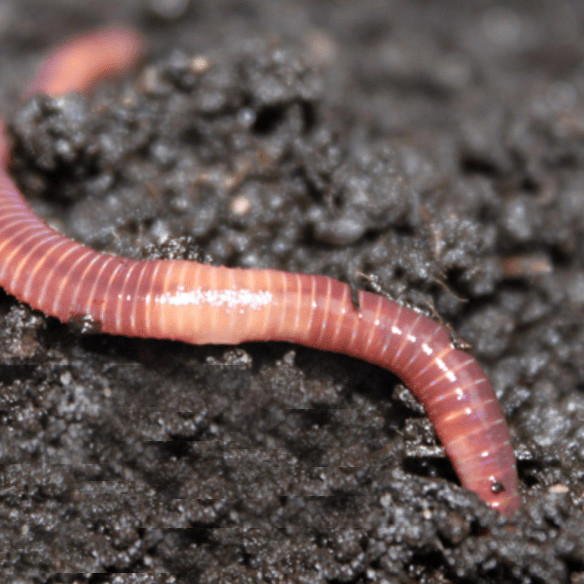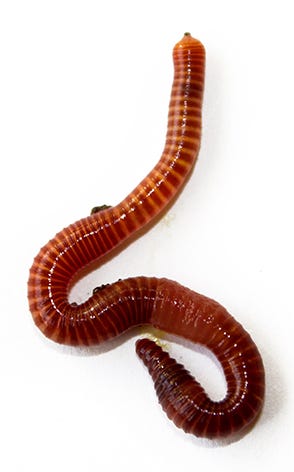Why Red Wigglers Are Important for Organic Farming
Red wigglers play a crucial role in organic farming, mainly via their unique capability to decay organic products and improve soil health. The level of their impact on agricultural methods and dirt biology raises appealing inquiries concerning the future of natural farming.
Role of Red Wigglers in Soil Health And Wellness

Furthermore, red wigglers enhance soil structure by creating networks as they tunnel. These networks improve aeration and water seepage, promoting a healthier origin atmosphere. Their task likewise assists in preserving ideal wetness levels, which is important for healthy plant development.

Benefits of Worm Castings
Worm spreadings, the nutrient-rich waste matter generated by red wigglers, act as an effective change for chemical-free farming. These spreadings are brimming with vital nutrients such as nitrogen, phosphorus, and potassium, which are essential for plant growth. Unlike synthetic plant foods, worm castings launch nutrients slowly, supplying a constant supply over time and lowering the threat of nutrient leaching and drainage.
Furthermore, worm spreadings enhance soil framework and aeration, promoting healthier origin systems. Their high raw material material enhances wetness retention, allowing plants to much better endure dry spell conditions. Furthermore, worm castings have beneficial bacteria that sustain plant health by subduing pathogens and boosting nutrition uptake.
The application of worm spreadings can result in raised crop returns and boosted top quality of produce, making them an indispensable resource for organic farmers. Their usage likewise aligns with sustainable farming techniques, contributing to dirt fertility without the adverse environmental effects connected with chemical fertilizers. Generally, the incorporation of worm castings into farming practices fosters a much more resistant and productive ecological community, underscoring the significance of red wigglers in natural farming systems.

Enhancing Nutrient Biking
(red worms for composting)Nutrient cycling is an important procedure in organic farming, and the assimilation of red wigglers plays a critical role in boosting this cycle. As red wigglers consume decomposing organic matter, they eliminate nutrient-rich spreadings, which are bursting with advantageous germs.
Moreover, red wigglers aid to increase the mineralization of nutrients, converting them from inert types right into bioavailable forms that plants can take in. This procedure is essential for keeping dirt fertility and promoting healthy crop growth. The presence of red wigglers additionally urges a varied dirt environment, cultivating a balance of nutrients that supports numerous plant species.
Improving Dirt Structure
The enhancement of soil structure is vital for fostering a healthy and balanced agricultural ecosystem, and the activity of red wigglers go to website substantially adds to this enhancement. These earthworms play an important role in aerating the soil and developing a network of channels that assist in water seepage and origin infiltration. As they delve with the soil, red wigglers break up compressed layers, permitting better oxygen exchange and promoting microbial activity.
Additionally, the raw material generated from their waste, recognized as vermicast, boosts soil aggregation. This procedure produces steady globs of dirt fragments, boosting soil porosity and minimizing disintegration (red wigglers). The visibility of red wigglers additionally urges the advancement of beneficial fungal networks, which are critical for nutrient uptake by plants
Supporting Sustainable Practices
Integrating red wigglers into chemical-free farming techniques not just improves soil health but likewise advertises sustainable agricultural techniques. These earthworms play an important duty in nutrition cycling, transforming organic waste right into useful compost that improves the dirt. By utilizing red wigglers, farmers can properly minimize dependence on synthetic fertilizers, thus lessening chemical overflow and its damaging results on communities.
In addition, the unification of red wigglers urges the practice of recycling organic products, such as kitchen scraps and ranch waste. This waste decrease method not just reduces disposal prices however also fosters a closed-loop system where nutrients are continually gone back to the dirt (red wigglers). Such practices are essential in mitigating climate change, as they improve carbon sequestration and reduce greenhouse gas exhausts
In addition, red wigglers boost water retention in the dirt, which is critical in times of dry spell. Their burrowing tasks develop channels that enable water to penetrate deeper into the ground, therefore promoting reliable water use. Ultimately, incorporating red wigglers into natural farming not only sustains biodiversity but additionally aligns with the concepts of sustainable farming, providing an all natural approach to food production.
Verdict
In conclusion, red wigglers play a critical role in natural farming by substantially improving dirt health and wellness and fertility. Their ability to decompose organic matter and produce nutrient-rich castings promotes a thriving microbial area, which is important for vitamins and mineral cycling. In addition, the burrowing tasks of these worms boost soil structure and oygenation, facilitating better water infiltration and origin development. Thus, the assimilation of red wigglers into farming techniques is important for advertising sustainability and enhancing general soil quality.